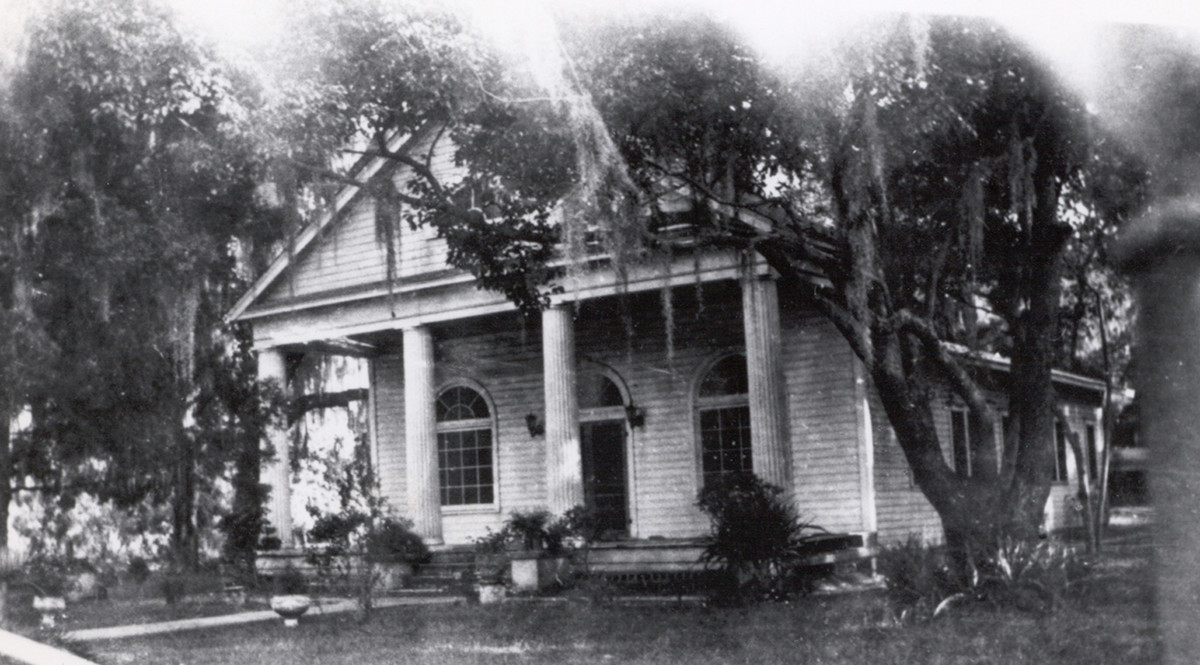Brutal pain and tragedy came to Orange Park in the summer of 1938
People living in Orange Park at this time were accustomed to suffering and struggle, death and pain.
Times were hard and had been that way for so long that it almost seemed normal. People were …
This item is available in full to subscribers.
Attention subscribers
To continue reading, you will need to either log in to your subscriber account, or purchase a new subscription.
If you are a current print subscriber, you can set up a free website account and connect your subscription to it by clicking here.
If you are a digital subscriber with an active, online-only subscription then you already have an account here. Just reset your password if you've not yet logged in to your account on this new site.
Otherwise, click here to view your options for subscribing.
Please log in to continueDon't have an ID?Print subscribersIf you're a print subscriber, but do not yet have an online account, click here to create one. Non-subscribersClick here to see your options for subscribing. Single day passYou also have the option of purchasing 24 hours of access, for $1.00. Click here to purchase a single day pass. |
Brutal pain and tragedy came to Orange Park in the summer of 1938
People living in Orange Park at this time were accustomed to suffering and struggle, death and pain.
Times were hard and had been that way for so long that it almost seemed normal. People were hanging on by their fingernails trying to scrape out a living and keep food on the table. They would have sworn it couldn’t get any worse.
But they would have been wrong. Even the strongest and toughest were stunned by the news tearing through the community that day. Two of the town’s littlest ones, Ruthie and Virginia-Lee, were missing, suspected dead, drowned off The Point.
Where the river bank forms a steep bluff and slopes down to the shore was the favorite place for residents of all ages to gather for community and church picnics and afternoon swimming. It was called The Point (now Holly Point).
Early in the afternoon on that summer day, the girls, their chores done, decided to take an early swim. They headed to The Point with Ruthie’s bulldog, Cloud, dancing around their bare feet.
Ruthie was 11, had a smile that could light up the world. She lived with foster parents in Orange Park and only occasionally saw her mother, a woman alone, who lived and worked in Jacksonville. Her foster parents treasured her and the whole town had a special place in their hearts for brave little Ruthie.
Her summertime friend, Virginia-Lee, was 15 and visiting with her half- brother’s family. Almost a young woman, Virginia-Lee had the manners of a princess and had already captured the hearts of neighborhood boys.
A little after three that afternoon, Ruthie’s sopping wet dog returned but the girls were not to be seen. Deputy Sheriff A.H. Harrington called out the volunteer fire department.
In less than an hour, seven private boats were on the water searching for the girls. Deputy Harrington told the newspapers what everyone knew.
Close to shore the shallow water was innocent but the bottom shelved off quickly and dangerous currents played around the point. A boat and crew arrived from Seashole Funeral Home shortly after 5 p.m. and joined the search.
For three nights and two days, the boats moved back and forth in a designated pattern and always a crowd waited on the bank, speaking in muted voices, waiting for some sign from the boats.
Desperate onlookers summoned a priest to bless round loaves of bread with lighted candles implanted and release them onto the water. It was believed that the bread would drift over the bodies, stop and the candles stop burning.
But, the melancholy parade of the boats continued – back and forth. In the nights, bonfires on the beach, lanterns and spiting torches allowed glimpses of the agony people shared. Images flashed of tears trailing down exhausted and drawn faces, men slumped with fatigue from holding the ropes that pulled the gruesome hooks sliding along the bottom of the river.
The bodies were found. Virginia-Lee went home to West Virginia and Ruthie was laid to rest in Magnolia Cemetery.
Fewer and fewer of the long-timers are still around to remember little Ruthie and Virginia-Lee but now you have heard the story. Remember them walking down the sun dappled two-rut dirt road, sliding their bare feet in the warm sand, with towels draped across their shoulders like little movie stars.








